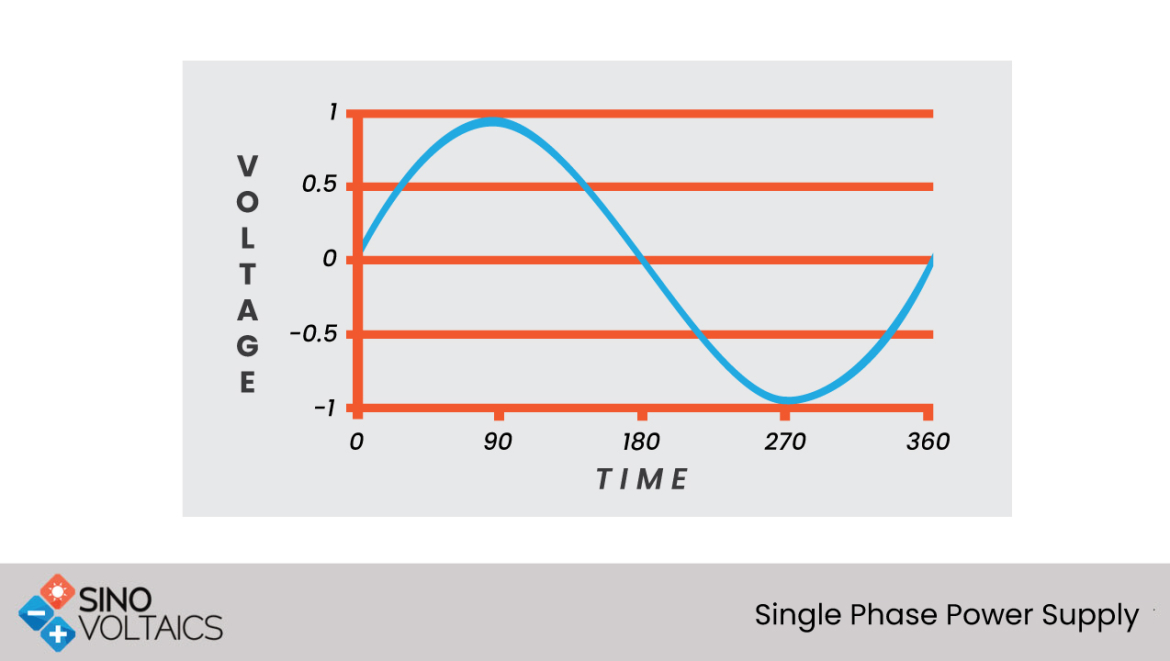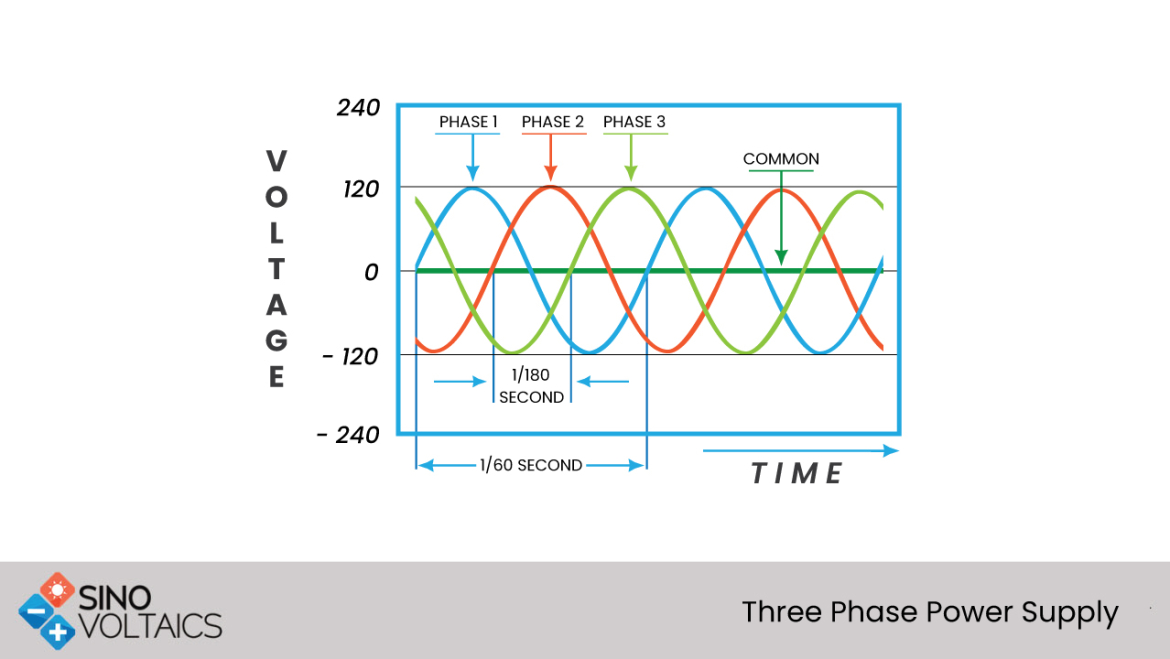Single Phase Power Supply
AC power supply has two categories namely single phase power supply and three phase power supply. For most industrial and business settings, a three phase supply is used, as the loads faced here are very high, whereas residential homes are generally supplied by a single phase power, because the overall loads demanded by households are less. Below we discuss the single phase power supply system conceptually in detail.
What is ‘Phase’ in Electricity?
Phase means the distribution of load. In a single phase supply, a single alternating current is supplied through a single wire, whereas in a three phase system 3 wires carry alternating current with a definite time offset in between the voltage waves are used.
Single Phase Supply –What is it?
A single phase AC power system peaks in voltage at 90⁰ and 270⁰, with a complete cycle at 360⁰ . With these peaks and dips in voltage, power is not delivered at a constant rate. In a single phase system, there is one neutral wire and one power wire with current flowing between them. The cyclical changes in magnitude and direction usually change flow in current and voltage about 60 times per second, depending on the particular needs of a system. 
Benefits and Uses of a Single Phase AC Power Supply
Single phase power supply units have a wide range of applications. Loads that have a limited power need up to 1000 watts make the most efficient use of a single phase AC power supply. The overall benefits of selecting a single phase system include:
- Broad array of application uses
- Most efficient AC power supply for up to 1000 watts
- Fewer design costs
- Less complex designs
Single Phase Supply Applications
The applications of single-phase supply include the following.
- This power supply is applicable for homes as well as businesses.
- Used to supply plenty of power for homes, as well as nonindustrial businesses.
- This power supply is sufficient to run the motors up to about 5 horsepower (hp).
Note A switch in connection from single phase to three phase will not increase energy charges in one’s electricity bill. So the number of units of electricity one consumes will remain the same (because they depend on the wattage of appliances and not on the electricity connection).
Single Phase Or Three Phase Power Supply for a residence? How to choose?
It is best to consult a power supply design engineer who can make appropriate recommendations for the most efficient and cost friendly option for a particular project. Normally, a residential connection should not require a three phase connection, as most appliances that are in a household are not heavy loads and do not need such a connection. But, if there are heavy appliances in the house, then it is better to go for a three phase connection. Three phase connection comes for an extra cost, so one certainly needs to evaluate if that is really required.

Swipr
on 05 Mar 2024